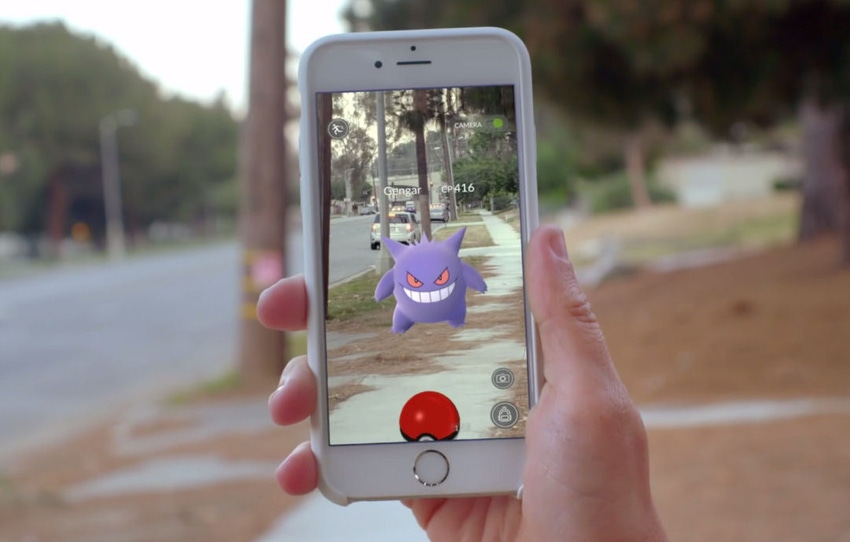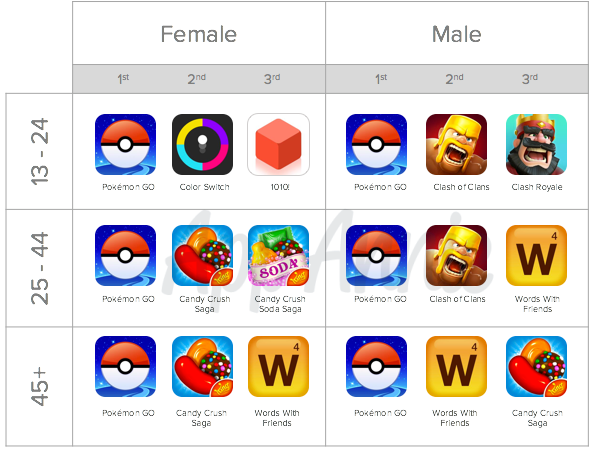Pokémon Go is not just a worldwide fad but a money-making machine, according to app data firm App Annie which estimates is will exceed $350 million in consumer spending across iOS and Google Play over the next few days.
August 15, 2016

Pokémon Go is not just a worldwide fad but a money-making machine, according to app data firm App Annie which estimates is will exceed $350 million in consumer spending across iOS and Google Play over the next few days.
Despite the worldwide popularity of the game and the lucrative earning potential, developer Niantic Labs has seemingly been rubbing a few people the wrong way. The game has already been banned in Iran and now Thailand’s regulator has contacted the Niantic Labs team demanding Pokémon be removed from sensitive locations or face another ban in what could potentially be a lucrative market. The bans, or threat of, do not seem to have impacted the earning potential of the app, as App Annie believes the app is still on course to generate over $1 billion per year.
The National Broadcasting and Telecommunications Commission (NBTC) in Thailand has reached out to Niantic Labs in the last few days to request the company does not locate Pokémon at or around state property, temples, private and dangerous areas, including roads, waterways and railways. According to the Bangkok Post, failure to comply with the requests could result in the game being banned across the country. Alongside the requests, the NBTC has been very civil in suggested the Pokémon be condensed around other areas of the country, which would align with tourism objectives of the country.
While there is certainly demand worldwide to compensate for the loss of certain markets, the Thai market represents an area of growth potential for not only Niantic Labs but numerous other tech organizations. Thailand is a growing market for smartphones and home to a young population, mean age estimated at 36.7 years old, representing some potential for the company, unlike countries such as Iran where earning potential may be limited.
The news follows Iran’s decision to ban the game, as it hasn’t gained the right permission from Iran’s supreme council of virtual space to operate in the country. Certain heritage sites in the UK have made complaints similar to the Thai, as have the Japanese and the US.
Although there have been organizations who have raised complaints, there have also been numerous who have been capitalizing on the craze to drive interest in their own businesses. Alongside the apps launch in Japan, McDonald’s announced a sponsorship agreement which turned 3,000 restaurants in the country into ‘gyms’ to attract customers onto the premises. Publicly funded organizations are also cashing in on the craze, including Barnstaple in North Devon, UK, which is hoping the app will attract younger demographics to Pokéstops which are located at 17 heritage sites in the area.
Despite the challenges which the app has faced in the first few weeks, including numerous server crashes blamed on the popularity of the game, the team are continuing its surge forward. The app is now the top ranked app in almost all demographics, not just the millennials (see diagram below) though this is its strongest. In the 13-24 segment Pokémon Go now ranks in the top 20 for all apps, even beating Spotify.
Although the popularity has exceed expectations of numerous around the industry and revenues would please those involved, there is still potential for more. In-game advertising is still relatively low in comparison to other apps, there are opportunities for more McDonald’s style sponsorship deals, merchandise licensing could take off again, and the number of users could still grow. While Pokémon Go has repetitively repeatedly dominated the headlines in recent weeks, it looks like there could be a few more stories to report.

Top App Downloads According To App Annie
About the Author(s)
You May Also Like








.png?width=300&auto=webp&quality=80&disable=upscale)


_1.jpg?width=300&auto=webp&quality=80&disable=upscale)


.png?width=800&auto=webp&quality=80&disable=upscale)